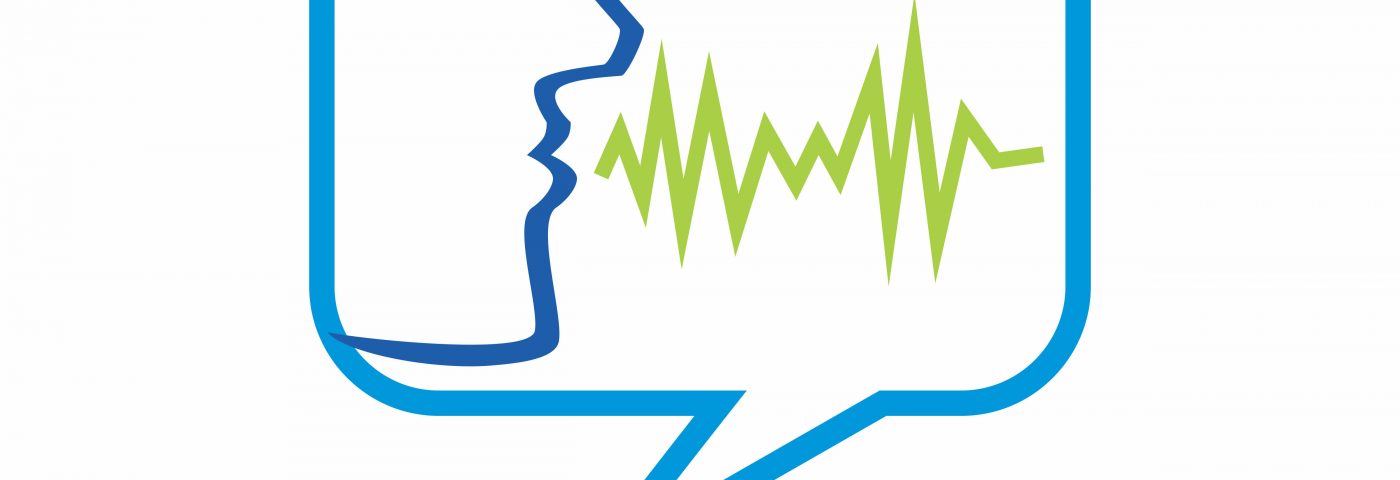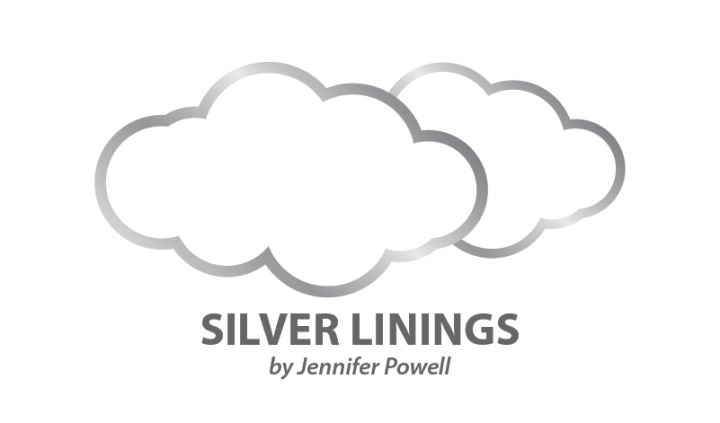Losing Words Through Dysarthria Is Hard for This Word Nerd
Written by |


I have always prided myself on my smarts. I excelled in college, where I realized my love for learning. I enjoy conversing with others, and I make a concerted effort to expand my horizons.
I have never shied away from an opportunity to make another’s acquaintance. Be it current events, literature, or travel, I am quite adept at holding my own. That said, I have noticed myself having great difficulty culling facts and finding the right words. I am unable to articulate intelligibly and my speed of speech has slowed considerably. What does come out is a poor representation of my thought process.
Some people with multiple sclerosis may develop a speech impediment, as neuromuscular atrophy associated with demyelination can cause dysarthria. Many with dysarthria slur or stutter and can have difficulty with enunciation, articulation, and flow.
Dysphonia often accompanies dysarthria and the two are easily confused. Dysphonia refers more to volume, resonance, and tone quality. Dysarthria and dysphonia can coexist.
I developed dysarthria shortly before new and active lesions were found. I originally attributed my wonky speech to fatigue or medication. Unfortunately, it was due to progression. As a self-described word nerd and someone who relies on her vocabulary to write, this was devastating. I still find it incredibly frustrating and will often shy away from conversations I once thrived on having.
I am embarrassed. I feel not-so-smart.
Connect with other patients and share tips on how to manage MS in our forums!
Witnessing the deterioration of my most prided trait has been humbling. I precisely envision what I want to communicate, yet something completely different emerges. I see the sympathetic look in others’ eyes as I try in vain to find my words. As the seconds tick by, I often will just laugh and admit defeat in an effort to disguise my chagrin.
There is a myriad of therapies available. Speech, swallow, and vocal therapists can help you strengthen what you do have. Like any body part, it is imperative to revive the movement to reduce further atrophy. Additionally, breath control can help give you the stamina necessary to speak with more fluidity. Speak with your neurologist about potential therapies for your specific needs.
I just answered the telephone and attempted to say good morning. What came out was the equivalent to an animal in pain. They hung up. I laughed. Hey, maybe I inadvertently turned away a solicitor for good?
I have learned the importance of good-natured, self-deprecating humor. There is so much seriousness in living life with MS, so never refuse an invitation to laugh. I promise that no matter how it comes out, you will find others smiling.
***
Note: Multiple Sclerosis News Today is strictly a news and information website about the disease. It does not provide medical advice, diagnosis, or treatment. This content is not intended to be a substitute for professional medical advice, diagnosis, or treatment. Always seek the advice of your physician or other qualified health provider with any questions you may have regarding a medical condition. Never disregard professional medical advice or delay in seeking it because of something you have read on this website. The opinions expressed in this column are not those of Multiple Sclerosis News Today or its parent company, Bionews Services, and are intended to spark discussion about issues pertaining to multiple sclerosis.



Roland Clarke
Timely post when I'm struggling. Now I know the next step. Thanks.
Megan Clarkson
This began as word retrieval difficulty for me. I have a huge word bank, was always very articulate in speaking, listening, processing and writing. Then the thick bullet proof glass dropped! I could see the words but couldn't touch or speak them
Devestating! I have developed my own "work arounds", humor is crucial. As is sharing with others "the newest gift MS has delivered is ..."
People now wait for a clue from me as to what help I need or want from them.
D.G.
Bless your heart, Jennifer! I can relate in that I've recently went through an episode of aspiration bronchitis/pneumonia since I forgot how to swallow vs. breath At just the WRONG moment. My primary problem is forgetting words at the most inopportune time! No way to pay homage to those ruler- toting nuns who drilled PhD level vocabulary into me at age 7! LOL Thank you for your article and the inspiration it gave me! BTW, if my reading speed continues to get slower, even "See Jane run." is going to be too much.
Jessie
Hi, thanks for explaining this. I have major word finding issues, but I think all us MS folks do. I was diagnosed 16 years ago.
Have you heard of writing problems? I for the most part can't write with a pen or pencil, my neurologists have ignored it when I ask.
Gwendolyn E Mugliston, PHD, DVM MSN
Yes, my writing is almost unintelligible but my typing remains fairly decent. I cannot use the typing pads in cell phones because my fingers stutter. A large keyboard is most helpful and that is exactly how I communicate with people not in my house.
Getty Bailey
When I lost the ability to hold a pen or to even type, I began using voice activated software on my computer. I also use an ink stamp with my signature in it. I use that on checks and anything that requires a signature. I have one home care aide who has mastered my signature on those computer pads at the grocery store and the doctor's office. If my voice goes away or changes dramatically, well I guess I'll cross that bridge when I come to it.
Karen
Oh, dear, our words sure are an important part of us. After 10 years with MS, my latest problem is that the words don't come out at all. Not because I don't know what I want to say, but because my brain just cannot find the particular word hidden away and bring it to my tongue.
As someone with a PhD in Mathematics Education, this afternoon I could not tell my therapist that I wanted to come for a massage. My brain could not find the word 'massage'! Luckily she knew what I wanted to say. I just laughed it off, but it sure feels ridiculous...
BELINDA J MATTOS
Jennifer, I definitely can relate to your experience. You told my story. Ever since I was diagnosed (at the age of 52, over 10 years ago), I prayed that this disease would not rob me of my intellect and ability to communicate. In the past two years, after I retired, I've experienced a decline in my ability to recall information and articulate during conversations. As you described, it is frustrating. So, I also attempt to hide my embarrassment with self-deprecating humor. I am scheduled for a cognitive reassessment in March, and I hope to find neuropsych therapy to help stop this regression. So, from one word nerd to another, keep the faith!!
Katie Tremper
Thank you, Jennifer, for this post. I have worked in education for 32 years, and have always been known for my intellect, vocabulary, and analytical skills. While I know most of it is "still there", the substantial decrease in cognitive processing speed, word retrieval problems, and increase in cognitive fatigue has impacted my life significantly. I agree that humor, along with equanimity, can make a big difference. So can sharing one's experience....thanks!
Glenda Hendry
My vocabulary included lots of medical terminology as a bachelors-prepared nurse. I can relate to the disappointment of losing that perfect word that was in my brain, but no longer exists for me.
Becky Adams
I did not have a name for what was happening to me. This is so embarrassing! Does therapy work?
Jodie
Thank you so much for sharing. This really made me giggle. I once told a work colleague that the table needed restarting. Unsurprisingly he looked confused!! Then I couldn't remember the word I actually wanted, so I wasn't able to clear up the confusion until he asked "computer?" I think he thought I was probably drunk.
As you say, it's good to have a giggle about it. My memory of his look of pure confusion still makes me laugh :)
Sending you positive thoughts,
Jodie.
Elizabetta
Thank you for sharing this. I almost cancelled going to Thanksgiving today for fear of being unable to hold up my end of a conversation. I have a newfound appreciation for listening and getting to know others -- even though I seem to forget most of it, including their names, by the time I see them again. Ugh. Happy Thanksgiving
Gwendolyn E Mugliston, PHD, DVM MSN
I, too, must use humor to deflect inappropriate concern or just plain avoidance when my mental word search leaves me grasping desperately for an 'equivalent' word. I do far better typing what I need and I am not sure why that is, exactly. Word loss is an attribute of people with dementia and that is always what people assume I have. I don't actually care what they think but it does silence me quite effectively because I am clearly not communicating. It is frustrating.
I find place names and names of people to be most frustrating. "You know, that guy with the beard" just doesn't cut it when so many men have a beard and his real name was simply "Joe".
I am taking a new drug (to me), Ampyra (dalfampridine, a potassium channel blocker), to facilitate my ability to walk. It has a side effect not noted in the accompanying literature of helping my disarthria. I have no idea why. I am grateful, however.
P. M. M.
Wow, these words could have been my own (well, after spending lots of time using a thesaurus, which has become my constant companion when I write!). My *main* cognitive problem is word-finding, which started when I was in my mid-30's and has been growing increasingly worse over the past 15 years since.
As a research scientist (astrophysics), I use self-deprecating humor extensively to mask my word-fishing when giving lectures or presentations. But I am ever aware that there is a very fine line there: using this kind of "humor" too much becomes unfunny, can cause my colleagues to lose confidence and respect for my work while not using it enough makes for some very odd moments of unexplained silence in the middle of my oral presentation (while my brain frantically looks for the right word or an acceptable synonym).
For those of you who have jobs that require you to interface with people on a daily basis and have to compose words and thoughts "on the fly" without benefit of a thesaurus/dictionary, what strategies do you use to help you? I take Nuvigil for physical fatigue, but it often has a nice and unexpected benefit of providing clarity in thinking, which has undoubtedly saved my career over the past ~5 years.
One other thing that I am curious about: for those of you suffering from disarthria, have you ever had a quantitative analysis performed on your MRIs to assess brain atrophy? My neurologist had a "Neuroquant" analysis ordered with MRI for the past 2 years now. The results were sobering but probably provide a sound physical reason for my disarthria: I have profound brain atrophy, specifically in the hippocampus (size-wise, mine have been measured to be in the 5th percentile, which I consider absolutely terrifying). Would be fascinating (in a scientific sense, of course) if all of us suffering from disarthria have a similar brain atrophy signature.